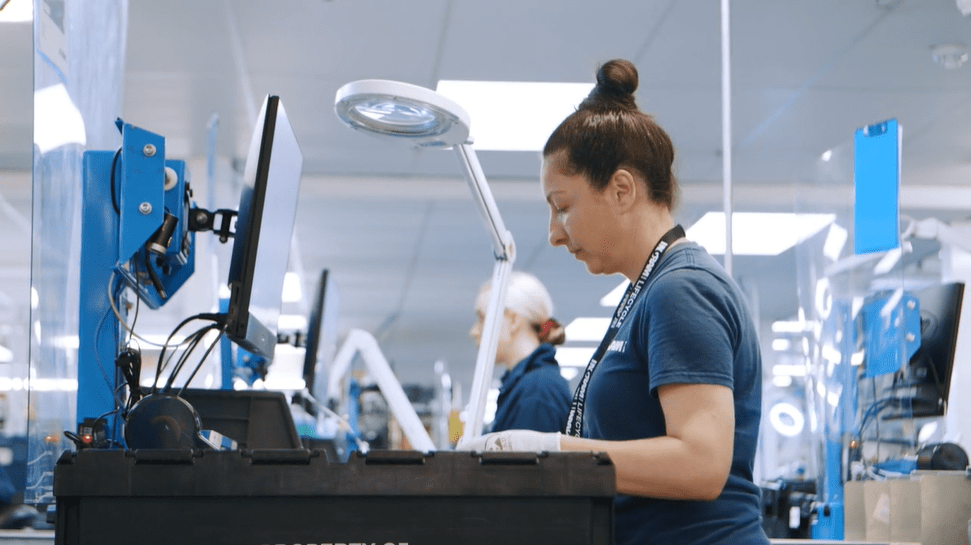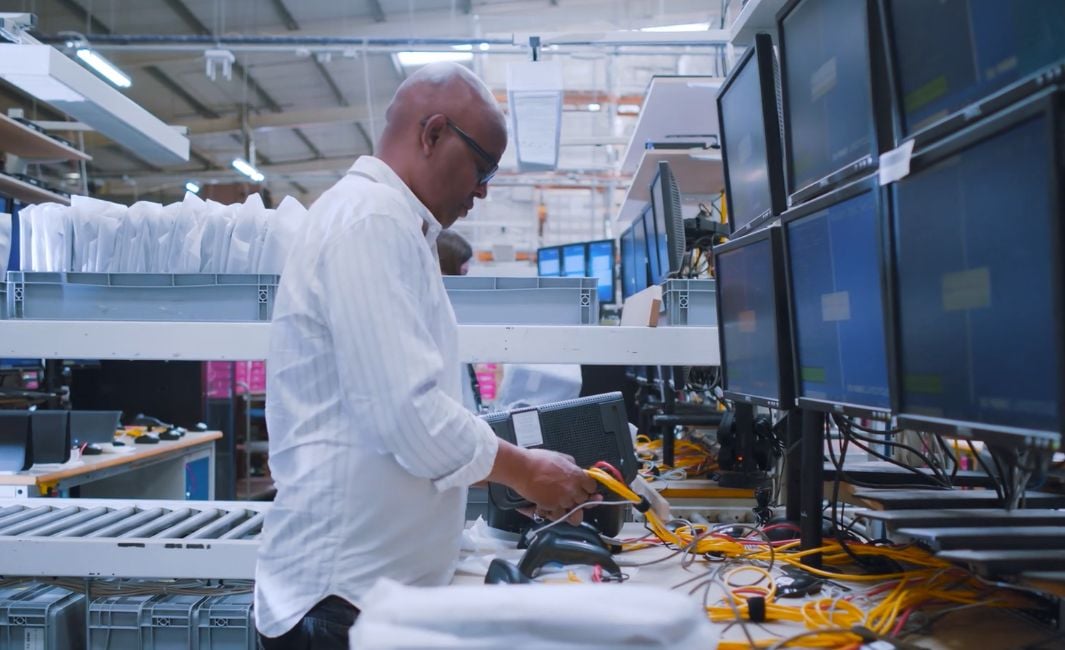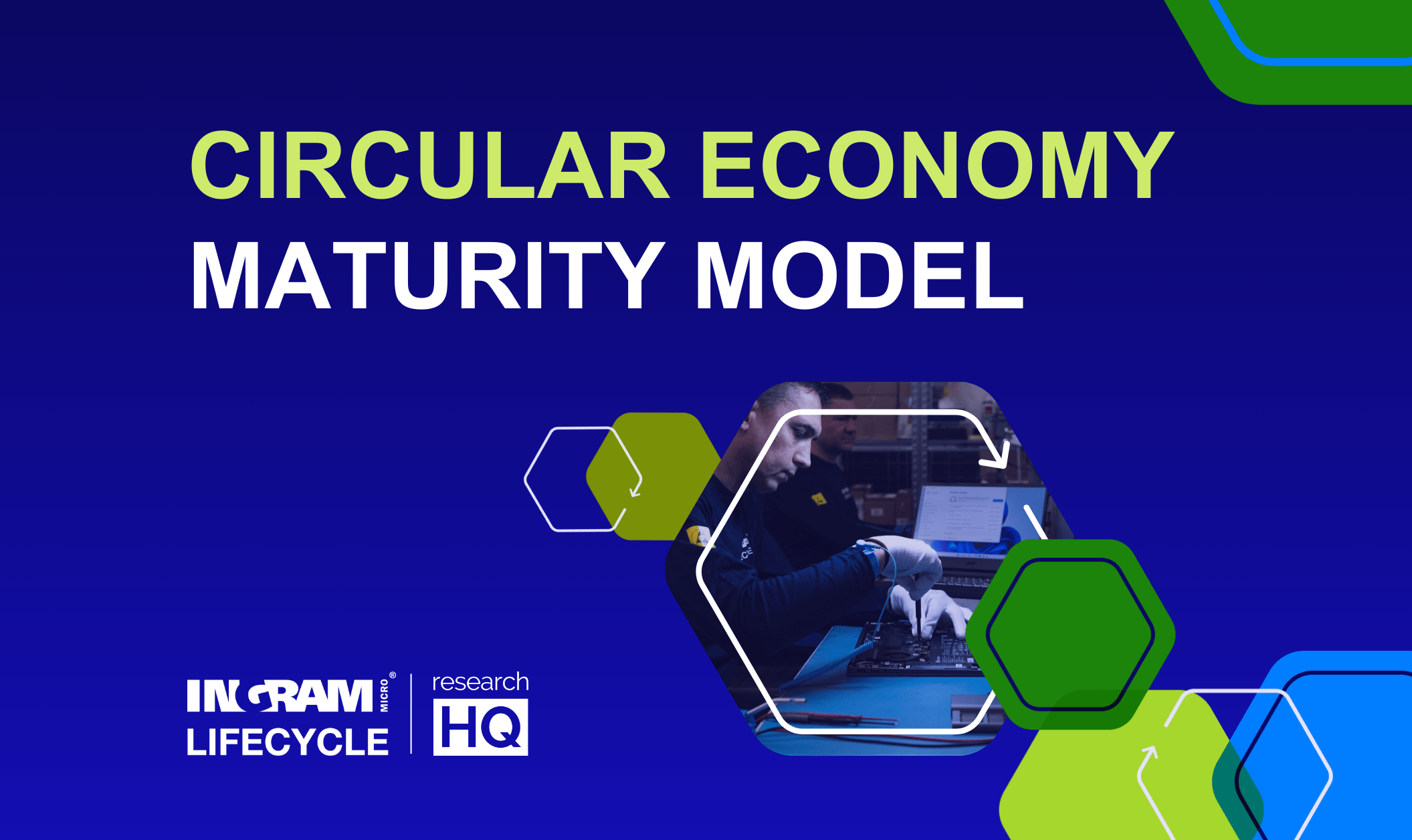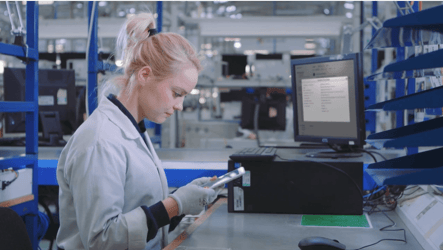Device reuse is a great way to ensure technology sustainability, yet this cannot compromise data security.
Ingram Micro Lifecycle supports global customers with reverse logistics for consumer technology products. This includes warranty returns and trade-in devices needing robust data wiping before reuse.
In this article, we’ll explain the importance of technology circularity and how data security impacts the reuse potential.
What is a circular economy and its importance
A circular economy moves away from the linear economy we’ve historically leaned towards.
A linear economy is the take, make, and waste of resources. Producing or manufacturing goods consumes finite and raw materials. These products are typically destined for landfill after use.

Linear economy
In a circular economy, products go through repair or refurbishment to extend the lifecycle. This process repeats, enabling reuse as many times as possible. This avoids the production of new products and reduces the pressure on raw materials.

Circular economy
Increasing waste is harmful to the environment, but electronic waste has specific risks. Awareness of these risks is rising among consumers, who are keen to consider alternatives to reduce these. This includes the reuse of technology via lifecycle extension, either with the same owner or sold elsewhere.
Regardless of the end-of-life outcome, data security should always be a constant consideration.
Exploring the link between the circular economy and data security
As technology reuse is more accepted and trusted, more data-bearing products enter the secondary market. It becomes increasingly important to ensure that data security isn’t compromised. Stringent wiping removes residual data that future users may have accessed.
A YouGov study found that nearly a quarter of participants had concerns about security and privacy when considering the purchase of refurbished smartphones.
Failing to wipe products ahead of their re-use can lead to data breaches, breaking regulations and laws, financial ramifications, and reputational impacts. Get auditable evidence, such as certificates, to show the measures taken to wipe technology.
Concerns over data retention act as a barrier to users releasing their products for reuse. If they feel that their data isn’t safe and may be accessible in the future, they’ll be hesitant to trade in, sell, or donate their products. Data security concerns will damage their trust in the process.
Questions over residual data may deter potential customers, creating a barrier to purchasing preloved tech. This decelerates the move towards a circular economy and impacts the market demand for second-life products.
Best practices for data wiping
There are several main factors to consider to support the success of data-wiping processes.
Insourcing or outsourcing
Do you have the software and infrastructure to be able to maintain consistent and compliant data wiping? If not, then perhaps outsourcing is the best route.
Align yourself with a third-party provider that has the experience and ability to perform consistently. Check what certifications and accreditations they hold to prove they’re audited to industry-recognized standards. Research potential partners to ensure they meet the high standards you and your customers will expect.
Product scope
Processes need to ensure that non-data-bearing devices are processed differently from data-bearing devices. It’s important that a data-bearing device is not misidentified and misses data wiping.
Different products may also need different kinds of data wiping, for example, hard drives. Processes must account for the different product data requirements.
Automation
Where in product processing can steps be automated to ensure consistent results? Using intelligent software and machine learning can yield greater efficiencies while still satisfying data regulations.
Audit trails
Whether insourcing or outsourcing, you need auditable evidence to show the reasonable data protection steps taken. Use industry-recognized and trusted data-wiping software and processes. This will offer a degree of protection should a breach occur or your processes are questioned.
Staff education and training
A handler of used data-bearing devices needs data security training and regular refreshers. This keeps them on top of new or amended data regulations and laws. This training should encompass all relevant data security legislation, particularly if your customers are across several geographies. Different regions may have different laws, for example, the GDPR.
If your staff understand why compliance is important and the consequences of failing to adhere then they’ll be more likely to follow your rules and guidance. Everyone should work together in the same direction to ensure success.
Transparency
The best way to reassure your customers that their data is safe is to be transparent about the processes you follow. Make it clear what they should expect from how you’re safeguarding their data so there’s no confusion.
Failing to meet their expectations will lead to diminished trust and ultimately impact your bottom line.
Ensuring reuse potential
By adhering to strict data protection policies, data-bearing devices can be compliantly wiped, making them suitable for reuse. These products can then be repurposed with the same customer, recycled sustainably, donated, or sold to another user.
Through working with a third-party provider like Ingram Micro Lifecycle, the processing of products creates an auditable trail for reassurance to you and your customers that their data is safe.
Contact us today to discuss more about our data-wiping processes and how we can support the sustainable reuse of your technology.
Related articles:
- Challenges when incorporating technology recovery and refurbishment
- How to sanitize data on SSDs
- Why recommerce is the future of tech sustainability and business growth
- The risks of returned data-bearing devices
- Benefits of a returns management partner
- Issues and challenges within the refurbished technology market













